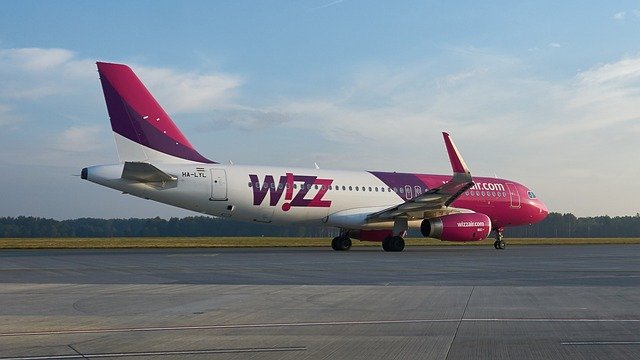Aviation Training Programs and Career Opportunities in the USA for 2025
Did you know aviation careers—from pilots to air traffic controllers—are set to grow significantly in the United States by 2025? Discover practical training pathways and key skills to launch or successfully advance your aviation career in this booming, dynamic industry.

An Overview of Aviation Training Programs in the USA
Aviation training in the United States spans a range of specialized fields, from pilot certification and flight instruction to air traffic control and technical maintenance. Two primary models highlight effective aviation education today:
Airline Pilot Training Pathways
Programs like the Airline Career Pilot Program provided by ATP Flight School offer structured routes from initial flight experience to careers as airline pilots. Established in 1984, this program has graduated over 25,000 pilots who have entered employment with multiple airlines.
- Program Features:
- Instruction tailored to support advancement toward commercial airline operations.
- Access to a fleet of aircraft and flight simulators.
- Financial aid options, including student loans through lending partners such as Sallie Mae.
- Curriculum aligned with Federal Aviation Administration (FAA) certification standards.
This program type provides a concentrated approach to building piloting skills appropriate for airline operations, developed to comply with regulatory requirements.
University Aviation Programs
Several universities, including Middle Georgia State University, offer broad aviation education beyond just flight training. Their School of Aviation provides:
- Flight training for both airplane and helicopter pilots.
- Air traffic control management courses.
- Aviation maintenance technology and aircraft structural technology programs.
- Accredited bachelor’s degrees in aviation science and management.
- Hands-on experience in FAA-certified training facilities with access to aircraft and simulators.
- Programs covering aviation operations, management, and technical disciplines.
University offerings include certificates, associate degrees, and bachelor’s degrees designed for various aviation career tracks, including operational and technical specialties.
Career Roles in Aviation Training and Industry
The aviation sector includes a wide array of roles beyond piloting, such as instruction, technical support, and operational positions.
Aviation Training and Instruction Positions
These roles focus on educating future aviation professionals:
- Flight Instructors: Deliver commercial flight training; typically require a Commercial Pilot Certificate (minimum 250 flight hours) or an Airline Transport Pilot Certificate (1,500 hours), along with FAA instructor certification. Essential skills include communication, organization, and student engagement.
- Cabin Crew Trainers: Provide instruction on flight safety, customer service, and standard operating procedures.
- Technical Trainers and Course Developers: Teach aviation systems, flight operations, human factors, and regulatory compliance.
- Training Managers: Manage and coordinate aviation training initiatives.
Professionals in these roles develop instructional content, assess trainee progress, and aid skill development. Demand for qualified aviation instructors is influenced by industry workforce trends.
Employment Opportunities in Aviation Operations
Other career paths in aviation may include:
- Pilots: Positions are available in regional, cargo, or major airlines requiring appropriate FAA certification obtained through various training routes.
- Air Traffic Controllers: Responsible for the safety of airspace, requiring specialized training and federal certification.
- Aviation Maintenance Technicians: Perform aircraft maintenance and ensure regulatory compliance, often trained via FAA-approved programs.
- Airport Operations Staff: Engage in airport management, safety coordination, and ground support services.
The aviation workforce is changing due to demographic shifts and alterations in air travel demand, impacting job availability across different sectors.
Requirements, Costs, and Eligibility for Aviation Training
Eligibility Factors
- Most flight training programs require a minimum of a high school diploma, with many employers and programs preferring or requiring a bachelor’s degree.
- Applicants must meet FAA medical and physical standards and complete prerequisite coursework.
- Flight instructors need commercial pilot certificates and FAA instructor credentials.
- University aviation programs have specific admission criteria depending on degree type and specialization.
Financial Considerations
- Aviation training incurs costs related to aircraft use, specialized instruction, and equipment.
- Some programs, like ATP Flight School, provide financing through partnerships with lenders.
- Universities may offer scholarships and financial aid; contacting admissions offices is recommended to explore options.
Training Duration
- Accelerated pilot training programs can take students from beginner status to commercial pilot certification within several months up to about a year.
- Degree programs vary from two-year associate degrees to four-year bachelor’s degrees.
- Maintenance and technical certifications differ in length depending on regulatory requirements and specific course content.
Skills Development and Industry Trends Relevant to 2025
Key Skills for Aviation Careers
Success in aviation roles often requires:
- Effective communication and interpersonal abilities.
- Attention to detail and organizational skills.
- Emotional intelligence, especially for safety-sensitive roles.
- Practical experience through simulators and hands-on training.
- Knowledge of aviation regulations and safety procedures.
Employment Outlook
Labor statistics and industry reports highlight consistent demand for trained personnel in piloting, instruction, technical maintenance, and operations roles. Workforce retirements and increased aviation activity contribute to job openings across a variety of aviation occupations, making these fields appealing for those entering or advancing their careers around 2025.
Aviation training opportunities in the United States offer multiple pathways for individuals interested in pilot certification, instructor roles, and other professional careers in airline and airport operations. From focused pilot training programs to university degrees, candidates can find education aligned with their goals and financial means. The aviation industry’s workforce needs continue to generate opportunities for qualified professionals with appropriate skills and certifications, supporting a broad range of career possibilities in 2025 and beyond.
Sources
- ATP Flight School - Airline Career Pilot Program
- Middle Georgia State University - School of Aviation
- Aviation Job Search - Aviation Training Jobs
Disclaimer: All content, including text, graphics, images and information, contained on or available through this web site is for general information purposes only. The information and materials contained in these pages and the terms, conditions and descriptions that appear, are subject to change without notice.




